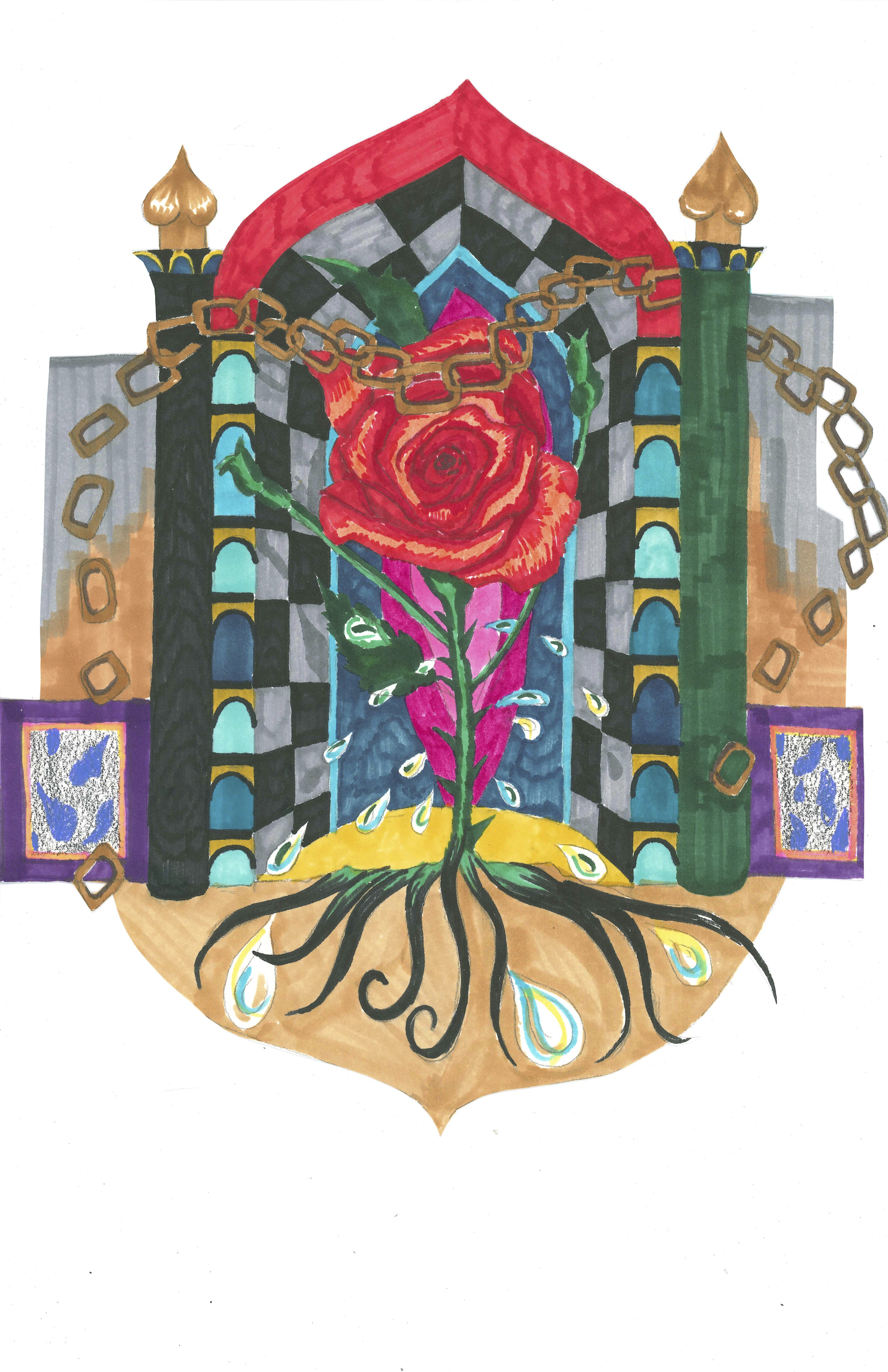
Labyrinth, a Circle of Passage
Color pencil and color-marker on paper
13 x 11 inches
2020
The work of Hangama Amiri concentrates on topics such as feminism, geopolitics, and gender. Pivotal in her artistic practice is the attention given to Afghan costumes and, more generally, to the Islamic culture. Amiri’s practice is based on the cutting and stitching of different Indian and Afghan fabrics and textile materials to create immersive compositions. Her artworks are meant to highlight the main issues of contemporary Afghan society and to celebrate Afghan women’s identities in visual art.
Hangama Amiri, born in Kabul, Afghanistan, holds an MFA from Yale University where she graduated in 2020 from the Painting and Printmaking Department. She received her BFA from NSCAD University in Halifax, Nova Scotia, and is a Canadian Fulbright.
Next: Three Fold Commissions: Untitled by Israel Aten
Color pencil and color-marker on paper
13 x 11 inches
2020
The work of Hangama Amiri concentrates on topics such as feminism, geopolitics, and gender. Pivotal in her artistic practice is the attention given to Afghan costumes and, more generally, to the Islamic culture. Amiri’s practice is based on the cutting and stitching of different Indian and Afghan fabrics and textile materials to create immersive compositions. Her artworks are meant to highlight the main issues of contemporary Afghan society and to celebrate Afghan women’s identities in visual art.
Hangama Amiri, born in Kabul, Afghanistan, holds an MFA from Yale University where she graduated in 2020 from the Painting and Printmaking Department. She received her BFA from NSCAD University in Halifax, Nova Scotia, and is a Canadian Fulbright.
Next: Three Fold Commissions: Untitled by Israel Aten